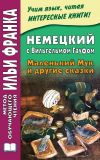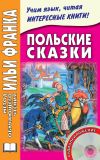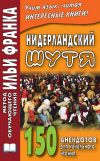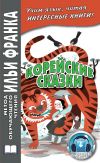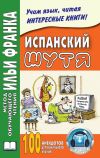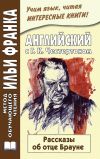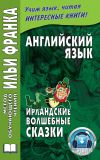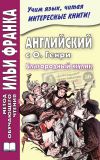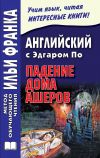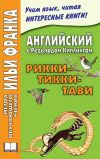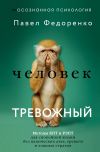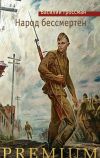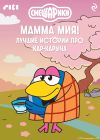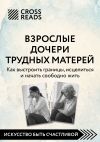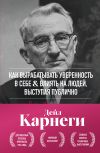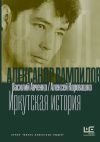Текст книги "Английский с Г. К. Честертоном. Случаи отца Брауна / Gilbert Keith Chesterton. The Sins of Prince Saradine. The Eye of Apollo"
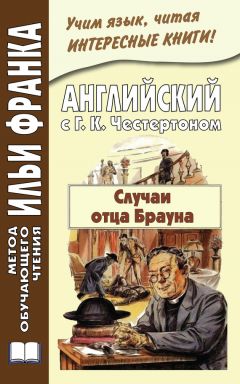
Автор книги: Гилберт Честертон
Жанр: Иностранные языки, Наука и Образование
Возрастные ограничения: +16
сообщить о неприемлемом содержимом
Текущая страница: 2 (всего у книги 11 страниц) [доступный отрывок для чтения: 2 страниц]
The boat took many such grassy corners (шлюпка подходила ко многим подобным участкам реки, с покрытыми травой /берегами/; to take – брать; двигаться /куда-л./; corner – угол; поворот /дороги/) and followed many such reedy and silent reaches of river (и миновала множество поросших камышом тихих речных плесов; to follow – следовать, идти за; reach – протягивание /руки/; плес, участок реки между изгибами); but before the search had become monotonous (но прежде чем поиски стали однообразными = но прежде чем поиски успели им наскучить) they had swung round a specially sharp angle (они повернули на особенно крутом изгибе: «на остром угле»; to swing – качать/ся/; to swing round – неожиданно изменить направление) and come into the silence of a sort of pool or lake (и оказались в тихой заводи или озере; to come into – вступать в; a sort of – своего рода, что-то вроде), the sight of which instinctively arrested them (вид которого непроизвольно привлек их /внимание/; to arrest – арестовывать, задерживать; приковывать /внимание/).

The prosperous man’s smile grew slightly more expansive, and he simply pointed up the river towards the next bend of it. Flambeau went ahead without further speech.
The boat took many such grassy corners and followed many such reedy and silent reaches of river; but before the search had become monotonous they had swung round a specially sharp angle and come into the silence of a sort of pool or lake, the sight of which instinctively arrested them.
For in the middle of this wider piece of water (потому что посередине этого раздавшегося вширь водоема; piece – кусок; отдельная часть), fringed on every side with rushes (окаймленный с каждой стороны тростником; to fringe – отделывать бахромой; окаймлять), lay a long, low islet (располагался длинный островок с низкими берегами; to lie – лежать; находиться), along which ran a long, low house or bungalow (вдоль которого тянулось длинное низкое строение или бунгало; to run – бежать; простираться, тянуться) built of bamboo or some kind of tough tropic cane (построенное из бамбука или какого-то прочного тропического тростника; to build). The upstanding rods of bamboo which made the walls were pale yellow (вертикальные стебли бамбука, образовывавшие стены, были бледно-желтыми; upstanding – находящийся в стоячем положении; to make – делать, изготавливать; составлять, образовывать), the sloping rods that made the roof were of darker red or brown (а наклонно /уложенные/ стебли, образовывавшие крышу, были темно-красными или коричневыми), otherwise the long house was a thing of repetition and monotony (во всем остальном длинный дом являл собою пример повторяющегося однообразия; otherwise – иначе, иным образом; во всем остальном; thing – вещь, предмет; repetition – повторение; повторяемость; to repeat – повторять). The early morning breeze rustled the reeds round the island (свежий: «ранний» утренний ветерок шелестел камышом вокруг острова) and sang in the strange ribbed house as in a giant pan-pipe (и гудел в ребрах странного дома, словно /играл/ на гигантской свирели; to sing – петь, напевать; гудеть, свистеть /о ветре/).

For in the middle of this wider piece of water, fringed on every side with rushes, lay a long, low islet, along which ran a long, low house or bungalow built of bamboo or some kind of tough tropic cane. The upstanding rods of bamboo which made the walls were pale yellow, the sloping rods that made the roof were of darker red or brown, otherwise the long house was a thing of repetition and monotony. The early morning breeze rustled the reeds round the island and sang in the strange ribbed house as in a giant pan-pipe.
“By George!” cried Flambeau; “here is the place, after all (/Святой/ Георгий! – воскликнул Фламбо, – вот наконец-то это место; to cry – кричать; воскликнуть)! Here is Reed Island, if ever there was one (вот он, Рид-Айленд, другого Камышового острова и быть не может: «если когда-либо и был такой»; reed – тростник, камыш; ever – всегда, когда-либо; также употребляется для эмоционального усиления). Here is Reed House, if it is anywhere (а если где и существует Рид-Хаус, Камышовый Дом, так вот он). I believe that fat man with whiskers was a fairy (мне кажется, что тот толстяк с бакенбардами был волшебником; to believe – верить; полагать, считать; fairy – фея; эльф).”
“Perhaps,” remarked Father Brown impartially (возможно, – заметил бесстрастно отец Браун; impartially – беспристрастно, справедливо). “If he was, he was a bad fairy (но если и так, тогда волшебник из него скверный).”
But even as he spoke (и пока он это говорил; even – даже; точно, как раз; to speak) the impetuous Flambeau had run his boat ashore in the rattling reeds (порывистый Фламбо уже подвел шлюпку сквозь потрескивавшие камыши к берегу; to rattle – грохотать; трещать), and they stood in the long, quaint islet beside the odd and silent house (и они очутились на длинном чуднóм острове рядом со странным и безмолвным домом; to stand – стоять).

“By George!” cried Flambeau; “here is the place, after all! Here is Reed Island, if ever there was one. Here is Reed House, if it is anywhere. I believe that fat man with whiskers was a fairy.”
“Perhaps,” remarked Father Brown impartially. “If he was, he was a bad fairy.”
But even as he spoke the impetuous Flambeau had run his boat ashore in the rattling reeds, and they stood in the long, quaint islet beside the odd and silent house.
The house stood with its back, as it were, to the river and the only landing-stage (дом стоял своей тыльной стороной к реке и единственному причалу; as it were – так сказать, как бы; back – спина; задняя часть); the main entrance was on the other side (главный вход находился с другой стороны), and looked down the long island garden (и был обращен в сад, /вытянувшийся/ во всю длину острова; to look – смотреть; выходить, быть обращенным /куда-л./). The visitors approached it, therefore (поэтому посетители подошли к нему), by a small path running round nearly three sides of the house (по узкой: «маленькой» тропинке, проходящей почти с трех сторон дома), close under the low eaves (прямо под низким карнизом; close – близко, около). Through three different windows on three different sides (сквозь три разных окна с трех разных сторон) they looked in on the same long, well-lit room (они видели одну и ту же длинную хорошо освещенную комнату; to look on – наблюдать; in /зд./ – внутри; to light), panelled in light wood, with a large number of looking-glasses (обшитую панелями из светлого дерева со множеством зеркал; a large number – масса, множество), and laid out as for an elegant lunch (и будто приготовленную для изысканного застолья; to lay – класть; to lay out – разложить, распланировать; lunch – ланч, второй завтрак; званый завтрак).

The house stood with its back, as it were, to the river and the only landing-stage; the main entrance was on the other side, and looked down the long island garden. The visitors approached it, therefore, by a small path running round nearly three sides of the house, close under the low eaves. Through three different windows on three different sides they looked in on the same long, well-lit room, panelled in light wood, with a large number of looking-glasses, and laid out as for an elegant lunch.
The front door, when they came round to it at last (когда они наконец подошли к парадной двери, /то обратили внимание/), was flanked by two turquoise-blue flower pots (что по обе ее стороны стояли две бирюзово-голубые цветочные вазы; to flank – располагаться по обе стороны; pot – горшок, котелок; цветочный горшок). It was opened by a butler of the drearier type (ее открыл унылого вида дворецкий; type – тип, класс, род; типаж) – long, lean, grey and listless (высокий, худой, седовласый и безразличный; grey – серый; седой /о волосах/; listless – апатичный, вялый) – who murmured that Prince Saradine was from home at present (который пробормотал, что принца Сарадина в настоящий момент дома нет), but was expected hourly (но его /прибытие/ ожидается; hourly – ежечасно; в любой момент); the house being kept ready for him and his guests (и дом готов: «поддерживается в готовности» для него и его гостей; to keep – хранить; поддерживать /в каком-л. состоянии/).

The front door, when they came round to it at last, was flanked by two turquoise-blue flower pots. It was opened by a butler of the drearier type – long, lean, grey and listless – who murmured that Prince Saradine was from home at present, but was expected hourly; the house being kept ready for him and his guests.
The exhibition of the card with the scrawl of green ink (предъявление карточки с надписью, /сделанной/ зелеными чернилами; exhibition – показ, демонстрация; scrawl – небрежный почерк, каракули) awoke a flicker of life in the parchment face of the depressed retainer (вызвало проблеск оживления на унылом пергаментном лице старого слуги; to awake – будить; пробуждать /эмоции/; retainer – вассал; слуга /особ. который долго живет в семье/; depressed – подавленный, угнетенный), and it was with a certain shaky courtesy (и с какой-то неуверенной учтивостью; shaky – трясущийся; ненадежный, непрочный) that he suggested that the strangers should remain (он предложил им остаться: «он предположил, что посетителям стоило бы остаться»; stranger – незнакомец; гость, посетитель). “His Highness may be here any minute,” he said (его высочество может быть здесь = может вернуться в любую минуту), “and would be distressed to have just missed any gentleman he had invited (и будет огорчен тем, что разминулся с джентльменами, которых пригласил; to distress – причинять горе, страдание; to miss – промахнуться, не попасть в цель; упустить, пропустить). We have orders always to keep a little cold lunch for him and his friends (у нас есть указание = нам велено всегда иметь наготове скромный холодный завтрак; order – порядок; приказ, распоряжение; little – маленький, небольшой; незначительный), and I am sure he would wish it to be offered (и я убежден, он пожелал бы, чтоб его вам предложили).”

The exhibition of the card with the scrawl of green ink awoke a flicker of life in the parchment face of the depressed retainer, and it was with a certain shaky courtesy that he suggested that the strangers should remain. “His Highness may be here any minute,” he said, “and would be distressed to have just missed any gentleman he had invited. We have orders always to keep a little cold lunch for him and his friends, and I am sure he would wish it to be offered.”
Moved with curiosity to this minor adventure (движимый любопытством к этому маленькому приключению; to move), Flambeau assented gracefully (Фламбо вежливо согласился), and followed the old man (и последовал за стариком), who ushered him ceremoniously into the long, lightly panelled room (который торжественно проводил его в длинную, светлую, обшитую панелями комнату). There was nothing very notable about it (ничего особенно примечательного в ней не было), except the rather unusual alternation of many long, low windows (за исключением довольно необычного чередования множества длинных низких окон) with many long, low oblongs of looking-glass (со множеством низких и вытянутых в длину зеркал; oblong – продолговатый предмет, удлиненная фигура), which gave a singular air of lightness and unsubstantialness to the place (что придавало комнате = что создавало в комнате какую-то особенную атмосферу легкости и нереальности; unsubstantial – несущественный; нематериальный, невесомый; substantial – существенный, значительный; un– /прист./ – придает противоположное или отрицательное значение; place – место; помещение).

Moved with curiosity to this minor adventure, Flambeau assented gracefully, and followed the old man, who ushered him ceremoniously into the long, lightly panelled room. There was nothing very notable about it, except the rather unusual alternation of many long, low windows with many long, low oblongs of looking-glass, which gave a singular air of lightness and unsubstantialness to the place.
It was somehow like lunching out of doors (все это каким-то образом напоминало завтрак на открытом воздухе). One or two pictures of a quiet kind hung in the corners (по углам висели два скромных портрета; one or two – немного, несколько; picture – картина, изображение; quiet – тихий, бесшумный; скромный, неброский; kind – сорт, вид; to hang), one a large grey photograph of a very young man in uniform (один /из которых/ оказался большой выцветшей фотографией очень молодого мужчины в форме; grey – серый; бледный), another a red chalk sketch of two long-haired boys (а другой – наброском, /выполненным/ красным мелом, /на котором были изображены/ два длинноволосых мальчика). Asked by Flambeau whether the soldierly person was the prince (на вопрос Фламбо, не принц ли этот военный; soldierly – воинский; военный; person – личность, особа), the butler answered shortly in the negative (дворецкий тут же ответил отрицательно; shortly – коротко; быстро, скоро); it was the prince’s younger brother, Captain Stephen Saradine, he said (это был, как он сказал, младший брат принца, капитан Стефан Сарадин).

It was somehow like lunching out of doors. One or two pictures of a quiet kind hung in the corners, one a large grey photograph of a very young man in uniform, another a red chalk sketch of two long-haired boys. Asked by Flambeau whether the soldierly person was the prince, the butler answered shortly in the negative; it was the prince’s younger brother, Captain Stephen Saradine, he said.
And with that the old man seemed to dry up suddenly (тут он вдруг замолчал, словно засох; to seem – казаться, представляться; to dry up – высохнуть, пересохнуть; замолкать, прекращать разговор /разг./) and lose all taste for conversation (и потерял всякий интерес к разговору; taste – вкус; склонность, пристрастие).
After lunch had tailed off with exquisite coffee and liqueurs (после того, как завтрак завершился чудесным кофе и изысканными ликерами; to tail off – подходить к концу; tail – хвост; завершение, заключительная часть /чего-л./; exquisite – изысканный; лучший, отборный), the guests were introduced to the garden, the library, and the housekeeper (гостей познакомили с садом, с библиотекой и с экономкой; to introduce – вводить /куда-л./; представлять, знакомить) – a dark, handsome lady, of no little majesty (темно/волосой/ представительной дамой, /державшейся/ с большим достоинством; handsome – красивый, статный /о мужчине/; солидный, представительный /о женщине/; no little – значительный; majesty – величественность, величавость), and rather like a plutonic Madonna (немного похожей на какую-то древнюю богиню плодородия; plutonic – относящийся к Плутону /в древнеримской мифологии – повелитель подземного мира/; Madonna /итал./ – госпожа).

And with that the old man seemed to dry up suddenly and lose all taste for conversation.
After lunch had tailed off with exquisite coffee and liqueurs, the guests were introduced to the garden, the library, and the housekeeper – a dark, handsome lady, of no little majesty, and rather like a plutonic Madonna.
It appeared that she and the butler were the only survivors of the prince’s original foreign menage (как оказалось, только она и дворецкий остались от прежней итальянской: «первоначальной иностранной» челяди принца; survivor – оставшийся в живых, уцелевший; menage – домашнее хозяйство) the other servants now in the house being new (все остальные: «другие» слуги в доме были новыми) and collected in Norfolk by the housekeeper (и нанятыми в Норфолке /самой/ экономкой; to collect – собирать; укомплектовывать, подбирать). This latter lady went by the name of Mrs. Anthony (эта последняя = вышеупомянутая дама именовалась миссис Энтони; to go by the name – быть известным под именем), but she spoke with a slight Italian accent (но говорила с легким итальянским акцентом), and Flambeau did not doubt (и Фламбо не сомневался) that Anthony was a Norfolk version of some more Latin name (что «Энтони» – это норфолкская интерпретация какой-то труднопроизносимой латинской фамилии; more – более многочисленный; добавочный, дополнительный; name – имя; фамилия).

It appeared that she and the butler were the only survivors of the prince’s original foreign menage the other servants now in the house being new and collected in Norfolk by the housekeeper. This latter lady went by the name of Mrs. Anthony, but she spoke with a slight Italian accent, and Flambeau did not doubt that Anthony was a Norfolk version of some more Latin name.
Mr. Paul, the butler, also had a faintly foreign air (мистер Пауль, дворецкий, тоже немного походил на иностранца: «имел слегка заграничный вид»; air – воздух, атмосфера; внешний вид /человека/), but he was in tongue and training English (но в его разговоре и манерах /угадывалась/ английская школа; training – воспитание, обучение), as are many of the most polished men-servants of the cosmopolitan nobility (как и у большинства вышколенных слуг знатных космополитов; to polish – полировать; делать изысканным, наводить лоск). Pretty and unique as it was, the place had about it a curious luminous sadness (несмотря на то, что дом был красив и необычен, повсюду чудилась странная светлая печаль; luminous – светящийся). Hours passed in it like days (часы проходили в нем, словно дни). The long, well-windowed rooms were full of daylight (длинные комнаты со множеством окон были залиты дневным светом: «были полны дневного света»), but it seemed a dead daylight (но этот свет казался неживым). And through all other incidental noises (и поверх всех прочих случайных звуков; incidental – побочный, дополнительный; noise – шум; звук /обыкн. неприятный/), the sound of talk, the clink of glasses, or the passing feet of servants (шума голосов: «звука разговоров», позвякивания стаканов, быстрых шагов слуг; passing – мгновенный, мимолетный; foot – ступня; поступь, шаг), they could hear on all sides of the house the melancholy noise of the river (со всех сторон дома они могли слышать = до них доносился грустный плеск: «шум» реки).

Mr. Paul, the butler, also had a faintly foreign air, but he was in tongue and training English, as are many of the most polished men-servants of the cosmopolitan nobility.
Pretty and unique as it was, the place had about it a curious luminous sadness. Hours passed in it like days. The long, well-windowed rooms were full of daylight, but it seemed a dead daylight. And through all other incidental noises, the sound of talk, the clink of glasses, or the passing feet of servants, they could hear on all sides of the house the melancholy noise of the river.
“We have taken a wrong turning, and come to a wrong place (мы выбрали не тот поворот и попали в неподходящее место; to take – брать; выбирать /дорогу/; wrong – неправильный, неверный),” said Father Brown, looking out of the window at the grey-green sedges and the silver flood (сказал отец Браун, глядя из окна на серо-зеленую осоку и серебристый поток). “Never mind; one can sometimes do good by being the right person in the wrong place (не беда, иногда можно творить добро, оказавшись нужным человеком в неподходящем месте).”
Father Brown, though commonly a silent (отец Браун, молчаливый по своему обыкновению), was an oddly sympathetic little man (был маленьким человечком, странным образом располагавшим к доверию; sympathetic – полный сочувствия, участия; милый, приятный, симпатичный), and in those few but endless hours (и за те немногие, но долгие: «бесконечные» часы) he unconsciously sank deeper into the secrets of Reed House (он, сам того не желая, проник в тайны Рид-Хауса глубже; unconsciously – бессознательно; to sink – тонуть; погружаться) than his professional friend (нежели его друг, /сыщик/-профессионал).

“We have taken a wrong turning, and come to a wrong place,” said Father Brown, looking out of the window at the grey-green sedges and the silver flood. “Never mind; one can sometimes do good by being the right person in the wrong place.”
Father Brown, though commonly a silent, was an oddly sympathetic little man, and in those few but endless hours he unconsciously sank deeper into the secrets of Reed House than his professional friend.
He had that knack of friendly silence (он обладал тем умением дружелюбно молчать; silence – тишина, безмолвие; молчание) which is so essential to gossip (которое столь необходимо для доверительной беседы; gossip – болтовня, пустой разговор; глубокая личная тайна, секрет; to gossip – болтать, сплетничать); and saying scarcely a word (и, не сказав почти ни слова), he probably obtained from his new acquaintances all (он практически всегда получал = узнавал от своих новых знакомых все то; probably – вероятно, наверное) that in any case they would have told (что они в любом случае рассказали бы = хотели рассказать; to tell). The butler indeed was naturally uncommunicative (/однако/ дворецкий от природы был человеком необщительным; indeed – в самом деле /служит для усиления/). He betrayed a sullen and almost animal affection for his master (он выказывал упорную и почти собачью: «животную» привязанность к своему хозяину; to betray – изменять, предавать; выказывать, проявлять; sullen – замкнутый, угрюмый; упрямый, строптивый /обыкн. о животных/); who, he said, had been very badly treated (с которым, как он сказал, обошлись очень скверно).

He had that knack of friendly silence which is so essential to gossip; and saying scarcely a word, he probably obtained from his new acquaintances all that in any case they would have told. The butler indeed was naturally uncommunicative. He betrayed a sullen and almost animal affection for his master; who, he said, had been very badly treated.
The chief offender seemed to be his highness’s brother (главным обидчиком был, по-видимому, брат его высочества), whose name alone would lengthen the old man’s lantern jaws (от одного имени которого худое лицо старика удлинялось; lantern jaws – впалые щеки; худое лицо; lantern – фонарь) and pucker his parrot nose into a sneer (а его /похожий на клюв/ попугая нос презрительно морщился в презрительной усмешке). Captain Stephen was a ne’er-do-weel, apparently (капитан Стефан был, очевидно, человеком никчемным; ne’er-do-weel = ne’er-do-well – никуда не годный, бесполезный человек), and had drained his benevolent brother of hundreds and thousands (который выудил у своего великодушного брата уйму денег: «сотни и тысячи»; to drain – осушать; высасывать, выкачивать; benevolent – благожелательный, благосклонный; великодушный); forced him to fly from fashionable life and live quietly in this retreat (чем вынудил того исчезнуть из светской жизни и жить в этом тихом уединенном месте; to fly – летать; исчезать, пропадать; quietly – тихо, спокойно; retreat – отступление; уединенное место, убежище). That was all Paul, the butler, would say (это все, что Пауль, дворецкий, пожелал /рас/сказать), and Paul was obviously a partisan (а Пауль был несомненно очень предан /своему хозяину/; partisan – приверженец, сторонник).

The chief offender seemed to be his highness’s brother, whose name alone would lengthen the old man’s lantern jaws and pucker his parrot nose into a sneer. Captain Stephen was a ne’er-do-weel, apparently, and had drained his benevolent brother of hundreds and thousands; forced him to fly from fashionable life and live quietly in this retreat. That was all Paul, the butler, would say, and Paul was obviously a partisan.
The Italian housekeeper was somewhat more communicative (экономка-итальянка была немного более разговорчивой), being, as Brown fancied, somewhat less content (будучи, как показалось отцу Брауну, немного менее довольной /принцем/; to fancy – воображать, представлять себе; думать, предполагать). Her tone about her master was faintly acid (ее тон, /когда она говорила/ о хозяине, был слегка язвителен; acid – кислый, кислотный; едкий, язвительный); though not without a certain awe (хотя и не без некоторого благоговения). Flambeau and his friend were standing in the room of the looking-glasses (Фламбо и его друг стояли в комнате с зеркалами) examining the red sketch of the two boys (рассматривая рисунок красным /мелом, изображавший/ двух мальчиков; sketch – набросок, эскиз), when the housekeeper swept in swiftly on some domestic errand (как /вдруг/ туда стремительно вошла экономка по какому-то домашнему делу; to sweep – мести, подметать; мчаться, нестись; errand – поручение, задание).

The Italian housekeeper was somewhat more communicative, being, as Brown fancied, somewhat less content. Her tone about her master was faintly acid; though not without a certain awe. Flambeau and his friend were standing in the room of the looking-glasses examining the red sketch of the two boys, when the housekeeper swept in swiftly on some domestic errand.
It was a peculiarity of this glittering, glass-panelled place (у этой сверкающей стеклянными панелями комнаты была такая особенность) that anyone entering was reflected in four or five mirrors at once (что каждый входящий в нее отражался в четырех или пяти зеркалах одновременно); and Father Brown, without turning round (и отец Браун, не оборачиваясь), stopped in the middle of a sentence of family criticism (оборвал себя на середине фразы, в которой он рассуждал о семейных конфликтах; to stop – останавливаться; прекращать; criticism – критика; критический анализ). But Flambeau, who had his face close up to the picture (но Фламбо, поглощенный изучением картины: «лицо которого находилось рядом с картиной»; close to – близко), was already saying in a loud voice (уже говорил громким голосом), “The brothers Saradine, I suppose (братья Сарадины, я полагаю). They both look innocent enough (оба выглядят достаточно невинно). It would be hard to say which is the good brother and which the bad (трудно сказать, который из братьев хороший, а который плохой).”

It was a peculiarity of this glittering, glass-panelled place that anyone entering was reflected in four or five mirrors at once; and Father Brown, without turning round, stopped in the middle of a sentence of family criticism. But Flambeau, who had his face close up to the picture, was already saying in a loud voice, “The brothers Saradine, I suppose. They both look innocent enough. It would be hard to say which is the good brother and which the bad.”
Then, realising the lady’s presence (тут, заметив присутствие дамы; to realize – понимать, ясно осознавать), he turned the conversation with some triviality (он, чтобы сменить /тему/ разговора, /выдал/ какую-то банальность; to turn – поворачивать/ся/, вращать/ся/; менять направление), and strolled out into the garden (и не спеша направился в сад; to stroll – прогуливаться, бродить). But Father Brown still gazed steadily at the red crayon sketch (но отец Браун продолжал неотрывно всматриваться в набросок, /сделанный/ красным мелком; steadily – постоянно, неуклонно); and Mrs. Anthony still gazed steadily at Father Brown (а миссис Энтони также неотрывно смотрела на отца Брауна; to gaze – пристально глядеть, уставиться; steadily – неуклонно, постоянно).
She had large and tragic brown eyes (у нее были большие и печальные карие глаза), and her olive face glowed darkly with a curious and painful wonder (а ее оливкового /цвета/ лицо излучало пытливое и мучительное удивление; to glow darkly – тускло мерцать) – as of one doubtful of a stranger’s identity or purpose (как у человека, для которого личность и намерения незнакомца остаются загадкой; doubtful – сомневающийся; identity – тождественность, идентичность; личность).

Then, realising the lady’s presence, he turned the conversation with some triviality, and strolled out into the garden. But Father Brown still gazed steadily at the red crayon sketch; and Mrs. Anthony still gazed steadily at Father Brown.
She had large and tragic brown eyes, and her olive face glowed darkly with a curious and painful wonder – as of one doubtful of a stranger’s identity or purpose.
Whether the little priest’s coat and creed touched some southern memories of confession (то ли сутана и сан маленького священника вызвали какие-то воспоминания об исповеди у себя на родине; coat – верхняя одежда; creed – кредо, убеждения; вероисповедание; to touch – трогать, осязать; трогать, волновать; southern – южный; южного происхождения), or whether she fancied he knew more than he did (то ли ей показалось, что он знает больше, чем знал на самом деле; to fancy – воображать, представлять себе; думать, предполагать), she said to him in a low voice as to a fellow plotter (она, по-заговорщицки понизив голос, сказала ему; in a low voice – тихо, вполголоса; fellow – человек, парень; товарищ, собрат; plotter – заговорщик), “He is right enough in one way, your friend (в одном «отношении» он прав, ваш друг; enough – достаточно, довольно; way – путь, дорога; отношение, аспект). He says it would be hard to pick out the good and bad brothers (он говорит, что трудно было бы отличить хорошего брата от плохого; to pick out – отличать, различать).

Whether the little priest’s coat and creed touched some southern memories of confession, or whether she fancied he knew more than he did, she said to him in a low voice as to a fellow plotter, “He is right enough in one way, your friend. He says it would be hard to pick out the good and bad brothers.
Oh, it would be hard, it would be mighty hard, to pick out the good one (ох, как трудно, чрезвычайно трудно отличить хорошего).”
“I don’t understand you (я вас не понимаю),” said Father Brown, and began to move away (сказал отец Браун, начиная продвигаться к выходу; to begin; to move away – удаляться).
The woman took a step nearer to him (женщина шагнула к нему: «взяла шаг ближе к нему»), with thunderous brows and a sort of savage stoop (грозно /нахмурив/ брови и как-то свирепо наклоняя /голову/; thunderous – громовой; грозный, внушающий ужас; thunder – гром; a sort of – своего рода, что-то вроде; savage – дикий, неприрученный; злой, свирепый; stoop – наклон вперед), like a bull lowering his horns (словно бык, опускающий свои рога /для атаки/).
Внимание! Это не конец книги.
Если начало книги вам понравилось, то полную версию можно приобрести у нашего партнёра - распространителя легального контента. Поддержите автора!
